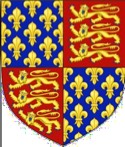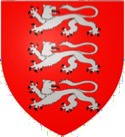The Latimers - Person Sheet
The Latimers - Person Sheet
Birth Date22 Jul 1210
Birth PlaceGloucester, England
Death Date4 Mar 1238 Age: 27
Death PlaceLondon, England
FlagsRoyalty
FatherPLANTAGENET, King John I (1166-1216)
Motherde FERRERS, Agatha (~1168-)
Spouses
Birth Date1173
Birth PlaceMeisgyn, Caenarvon, Wales
Death Date11 Apr 1240 Age: 67
Death PlaceCaenarvonshire, Wales
FlagsRoyalty
Fatherab OWAIN, Iorwerth (1145-~1184)
MotherMADOG, Margaret verch (~1140-)
Misc. Notes
Nothing in the Middle Ages more weakened Wales’s chances of emerging as an independent state than the prevailing rules of inheritance. Instead of land and titles passing to the eldest son, everything was divided up among competing heirs. Although sharing laws, customs and language, seldom were the Welsh united under a single dominant ruler.
This was the situation faced by Llywelyn ap Iorwerth when he inherited one third of the ancient kingdom of Gwynedd. Yet by the age of 27 he was the most powerful figure in northern Wales. He defeated his uncle Dafydd in battle and, benefiting from the death of a cousin, took control of all of Gwynedd.
Llywelyn was as astute a political manipulator as any medieval prince. He befriended King John of England, assisted in his campaign against the Scots and married Joan, his illegitimate daughter. It all strengthened Llywelyn’s hand within Wales and helped him seize control of Powys and Ceredigion.
Known to history as a weak and vacillating ruler, John was not a dependable ally. He turned against Llywelyn and having marched into northeast Wales, defeated him in battle. It was the cue for the Welsh to rise up and unite behind Llywelyn.
John was also under internal pressure from his barons. The treaty of Magna Carta in 1215 led to a period of civil strife in England that yielded considerable dividends for Llywelyn. He regained control of the lands he had lost and marched his army into Shrewsbury.
Over the next three years Llywelyn extended his power base into the south, and circumscribed the authority of the Marcher Lords. He became unquestionably the single most powerful figure in Wales, a status recognised by the Treaty of Worcester in 1218.
More than just an opportunistic warlord, Llywelyn refined Wales’s laws and patronised its bards. On the shifting sands of Welsh medieval power politics, he laid strong foundations on which his grandson, Llywelyn ap Gruffudd would build.
Also see:http://www.pro.gov.uk/pathways/utk/wales/wales01.htm
This was the situation faced by Llywelyn ap Iorwerth when he inherited one third of the ancient kingdom of Gwynedd. Yet by the age of 27 he was the most powerful figure in northern Wales. He defeated his uncle Dafydd in battle and, benefiting from the death of a cousin, took control of all of Gwynedd.
Llywelyn was as astute a political manipulator as any medieval prince. He befriended King John of England, assisted in his campaign against the Scots and married Joan, his illegitimate daughter. It all strengthened Llywelyn’s hand within Wales and helped him seize control of Powys and Ceredigion.
Known to history as a weak and vacillating ruler, John was not a dependable ally. He turned against Llywelyn and having marched into northeast Wales, defeated him in battle. It was the cue for the Welsh to rise up and unite behind Llywelyn.
John was also under internal pressure from his barons. The treaty of Magna Carta in 1215 led to a period of civil strife in England that yielded considerable dividends for Llywelyn. He regained control of the lands he had lost and marched his army into Shrewsbury.
Over the next three years Llywelyn extended his power base into the south, and circumscribed the authority of the Marcher Lords. He became unquestionably the single most powerful figure in Wales, a status recognised by the Treaty of Worcester in 1218.
More than just an opportunistic warlord, Llywelyn refined Wales’s laws and patronised its bards. On the shifting sands of Welsh medieval power politics, he laid strong foundations on which his grandson, Llywelyn ap Gruffudd would build.
Also see:http://www.pro.gov.uk/pathways/utk/wales/wales01.htm
ChildrenAngharad verch
Margaret verch (~1210->1263)




